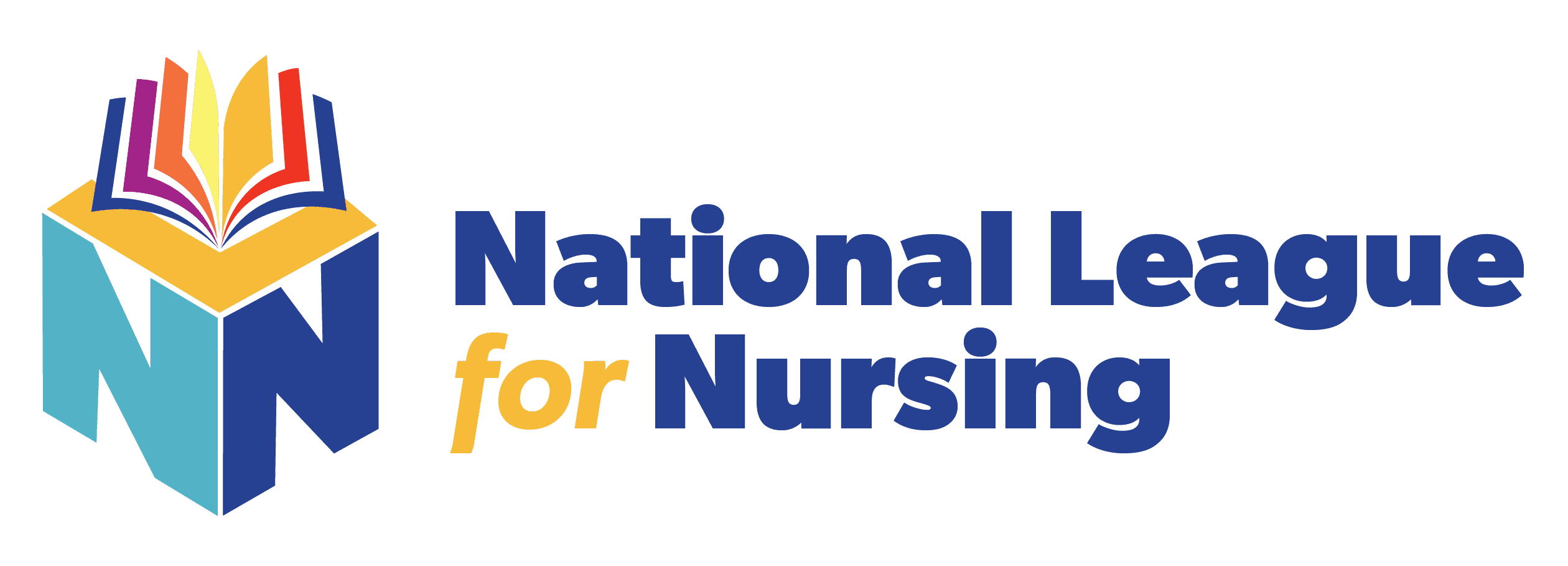NLN Research Journal Publishes Themed Edition Featuring Evaluating Innovations in Nursing Education
Initial findings from the Robert Wood Johnson Foundation Initiative in September-October Issue of Nursing Education Perspectives
FOR IMMEDIATE RELEASE
Washington, DC, October 17, 2014 — Nursing Education Perspectives, the NLN's respected bimonthly peer-reviewed research journal was invited to publish initial findings from the Robert Wood Johnson Foundation (RWJF) Evaluating Innovations in Nursing Education (EIN) Initiative. EIN, based at the Center for State Health Policy at Rutgers University in New Brunswick, NJ was launched in 2008 in response to the growing shortage of nurses and nurse educators. Currently in its third grant cycle, the initiative supports evaluations of interventions that expand teaching capacity or promote faculty recruitment and retention in schools of nursing. So far, 12 grants of up to $300,000 have been awarded.
An important corollary to the EIN mission is the dissemination of evidence-based success in strategic interventions that may be widely replicated. "As a respected forum for presentation of evidence-based best practices and issues that are key to excellence in nursing education, Nursing Education Perspectives is a natural fit for these latest EIN findings," noted NEP editor Joyce Fitzpatrick, PhD, RN, FAAN. "We made certain to expedite our peer-review process to respond to the foundation's and the NLN's shared interest in the timely publication of this research."
Added NLN CEO Beverly Malone, PhD, RN, FAAN: "The NLN was delighted to be asked by the Robert Wood Johnson Foundation to showcase the groundbreaking EIN scholarship. Understanding how best to increase recruitment and retention of nurse educators dovetails with the NLN mission to promote excellence in nursing education to build a strong and diverse nursing workforce to advance the health of our nation and the global community."
The six manuscripts accepted for publication, following NEP's peer-review, are:
- ➢ "Increasing Faculty Capacity: Findings from an Evaluation of Simulation Clinical Teaching," Hila Richardson, Lloyd Goldsamt, Janie Simmons, and Mattia Gilmartin; New York University
➢"Dedicated Education Unit: Student Perspectives," Vicki Nishioka, Michael Coe, Makoto Hanita, and Susan Moscato; University of Portland, OR
➢"Dedicated Education Unit: Nurse Perspectives on their Clinical Teaching Role," Vicki Nishioka, Michael Coe, Makoto Hanita, and Susan Moscato; University of Portland, OR
➢"Building the Evidence for Dedicated Education Unit Sustainability and Partnership Success," Joann Mulready-Shick and Kathleen Flanagan; University of Massachusetts, Boston
➢"An Evaluation of State-based Support for Service Programs Targeting Nurse Faculty," Jennifer Craft-Morgan, Don Pathman, Marilyn Oermann, T. R. Konrad, and Brandy Farrar; Georgia State University and University of North Carolina-Chapel Hill
➢ "Evaluation of the First Two Years: A State-Wide Consortium's Adoption of a Unified Nursing Curriculum," Alice Tse, Victoria Niederhauser, John Steffen, Lois Magnussen, and Nova Morrisette; University of Hawaii at Manoa
In his guest editorial introducing the reported findings, "Effectiveness of Strategies Addressing the Nurse Faculty Shortage," Michael Yedidia, PhD, national program director of EIN and professor at Rutgers University Center for State Health Policy, highlighted several trends in academic nursing that gave rise to the need to create and test specific interventions. Dr. Yedidia then issued a call to action to schools of nursing to join EIN in expanding the project’s scope.
To learn more about Nursing Education Perspectives and read the latest issue online, visit: /nlnjournal/index.htm.
Dedicated to excellence in nursing, the National League for Nursing is the premier organization for nurse faculty and leaders in nursing education. The NLN offers professional development, networking opportunities, testing services, nursing research grants, and public policy initiatives to its 40,000 individual and 1,200 institutional members. NLN members represent nursing education programs across the spectrum of higher education, and health care organizations and agencies.
